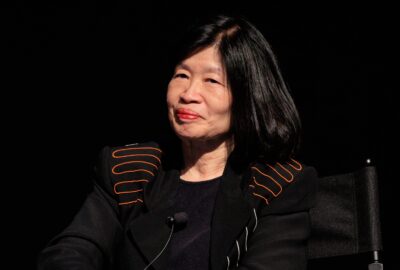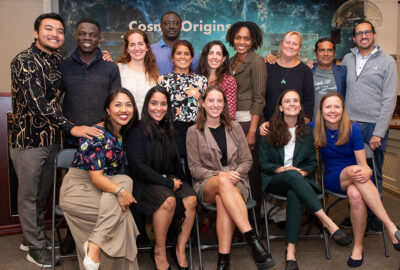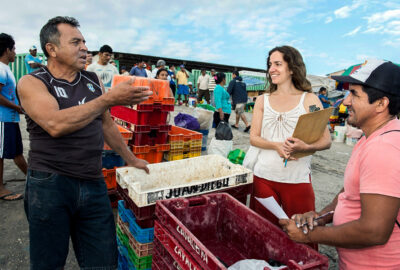MCAF Fellows and Project Leaders Advancing Ocean Conservation Across Asia
By New England Aquarium on Monday, May 20, 2024

Through the Marine Conservation Action Fund (MCAF), the Aquarium supports locally-led ocean action across the globe. Here, we’re spotlighting Asian conservationists who, as MCAF Fellows and Project Leaders, are working with their communities to improve ocean health and protect marine species.
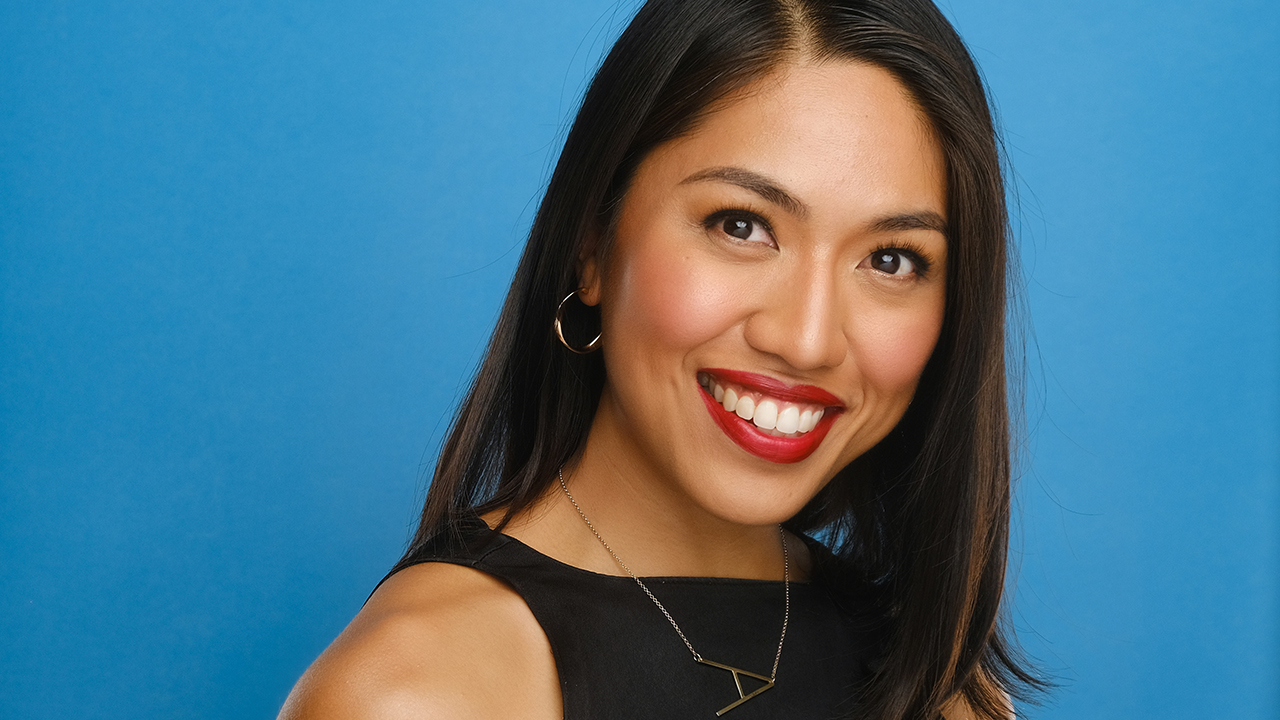
Anna Oposa, MCAF Fellow
Executive Director & “Chief Mermaid” of Save Philippine Seas
What inspired you to work in ocean conservation?
My father is an environmental lawyer whose work took our family to marine-protected areas with seagrass meadows, mangrove forests, and coral reefs. He insisted that my siblings and I become scuba divers so we could get to know our country better. The Philippines is part of the Coral Triangle, which is known to be the world’s center of marine biodiversity — so it wasn’t hard to fall in love with our marine resources! Immediately after college, I co-founded Save Philippine Seas as a social media campaign in response to an illegal wildlife trade case. I thought it would be a passion project while I looked for a full-time job, but here I am still leading SPS 13 years later!
What do you like about being part of the MCAF community?
The MCAF community sees its fellows as whole human beings—they don’t just focus on what we do, but who we are. This approach isn’t common, and MCAF is leading by example. There’s also a commitment to keep the community connected and thriving, which helps us feel less alone as conservation leaders.
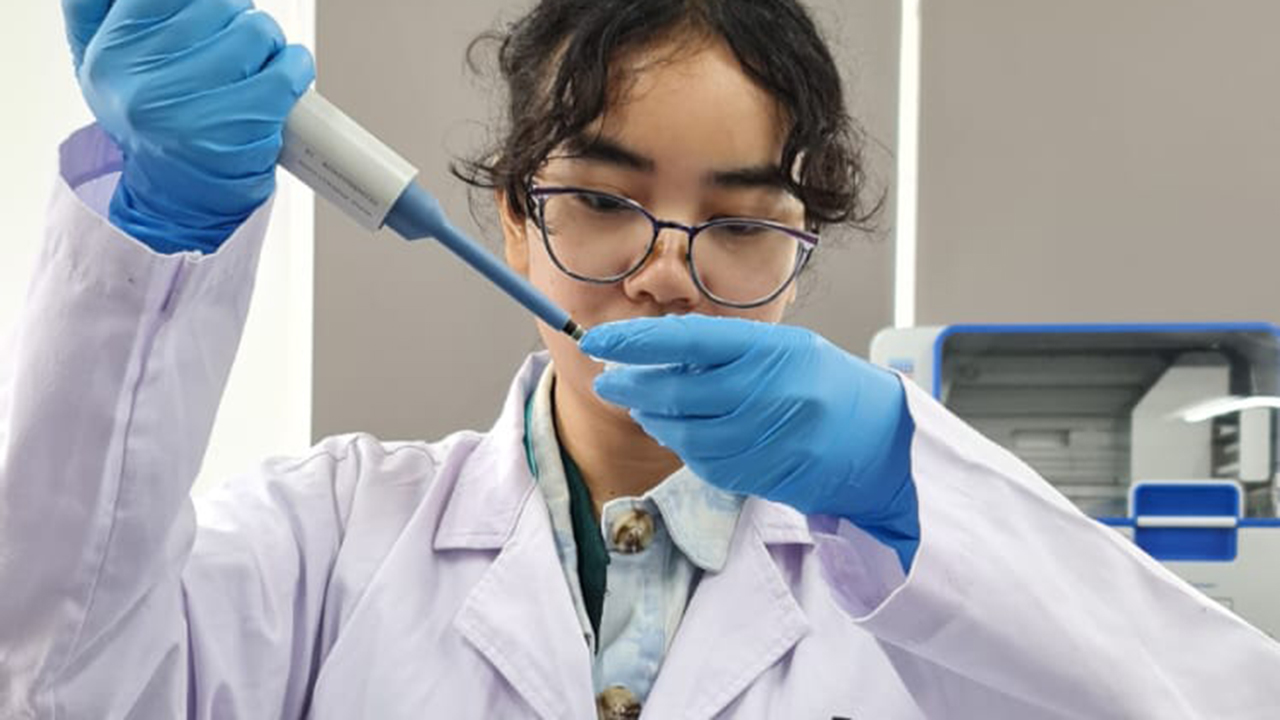
Kinanti A. Niloperbowo, MCAF Early Career Ocean Professional
Elasmobranch Project Indonesia
What inspired you to work in ocean conservation?
I have been an avid shark enthusiast since I was a little kid, where my dad would print a lot of various shark images and let me hang them up on the wall of our house. I used to be obsessed with films and documentaries that featured someone swimming with sharks and wondered if I could do it, too.
That fascination faded with time, but it came back when I was in my senior year of high school and needed to find a major that I can relate with. I took a leap of faith and got into marine science, only relying on a faded childhood dream. I joined a student community, GAIA Conservation, that focuses on elasmobranch (shark and ray) and sea turtles, climbed the ladder, and became the CEO of said community. Along the way, I realized that ocean conservation is not black and white as I initially thought. There are layers that are rarely exposed to the common public, such as economic and social class differences, and the most intriguing to me is a culture that has a deep root in the coastal society surrounding elasmobranch products’ demand.
The complexity of ocean conservation work has inspired me to choose this path. I feel that everyone, regardless of their backgrounds, can be involved in this work. I want to change people’s perception about ocean conservation. They would usually say that ocean conservation work can only be done by marine-major-related experts, but that is not the case. Ocean conservation is not only about fieldwork; there are more activities that have the same importance as spending all day on the sea, such as genetic lab work (which I am currently doing), social-economic surveys of involved stakeholders, even being in the government and making important regulations still counts as ocean conservation work to me. Ocean conservation work is criminally underrated yet the one of the most inclusive jobs exists where everyone has the potential to work in this field.
What are some recent successes or achievements you’ve made in your work?
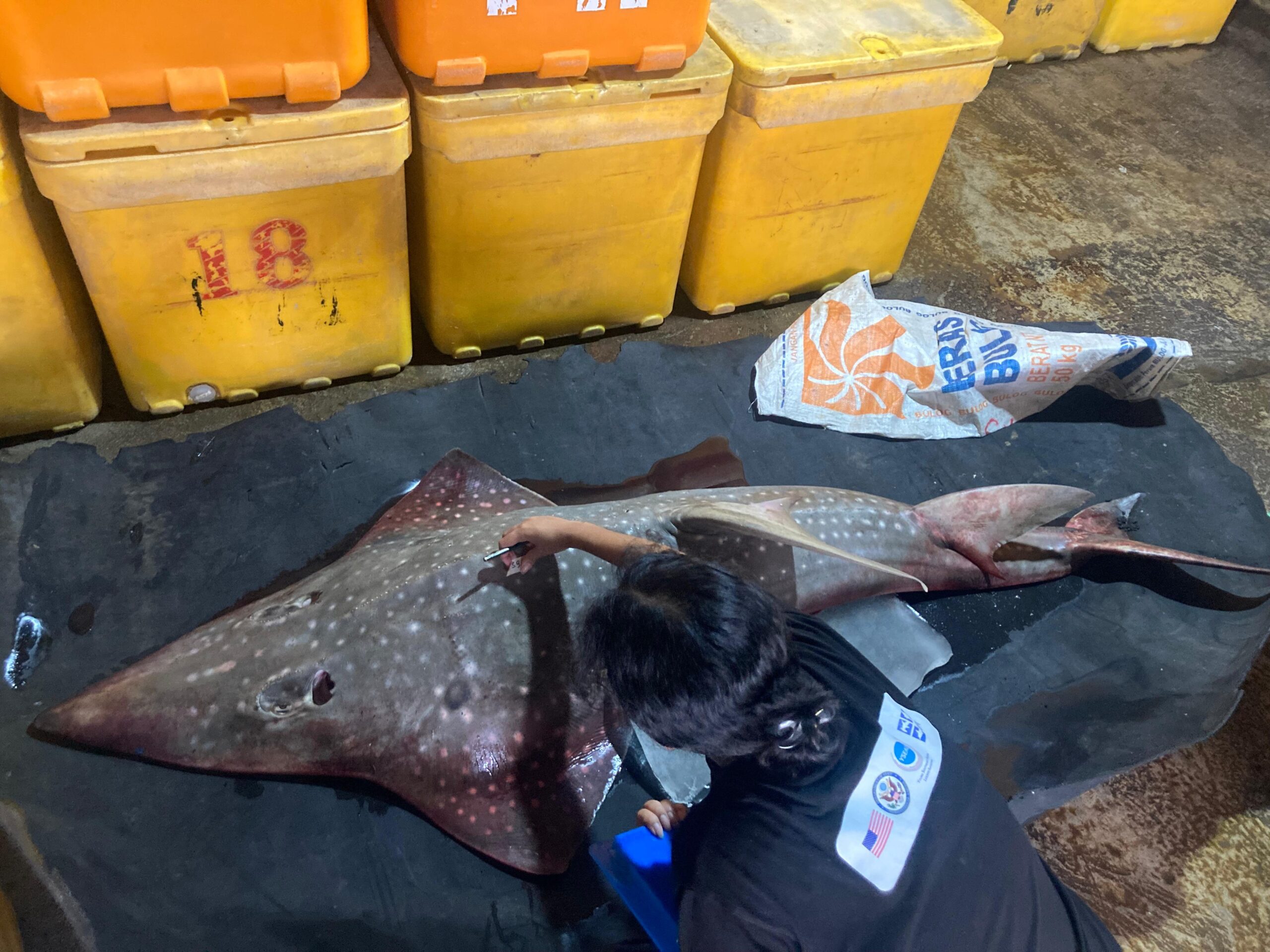
Based on the objective of our project, we have obtained nine months of landing data that consists of more than 2,000 individuals of sharks and rays. We recently made an astonishing discovery related to local demand of our target species, which led us to expand our sampling area to a neighboring non-coastal village in Jepara. This village surprisingly plays a big role in the production and distribution of wedgefish and giant guitarfish processed products to local consumers in the province. Expanding our sampling area also allows diet and female reproduction data collection to be far more efficient. The decision that led to this big achievement was made in late December 2023 when we noticed big female individuals of wedgefish were landed and shipped to the said village. We communicated with one of the locals, et voila; we finally managed some pregnant individuals within the past 3 months. This was previously impossible to be done due to the distance of the village and our human resource delimitation. For my personal achievement, I have learned to adapt quickly to the everchanging fisheries conditions so that I can suggest and make effective decisions based on the field situation. I struggled with my insecurity because I was managing people who were and are older than me. As this was my first debut professionally in people management, I found it challenging at first but now I have grown accustomed to the work because I realized I have the knowledge and experience to actually do it.
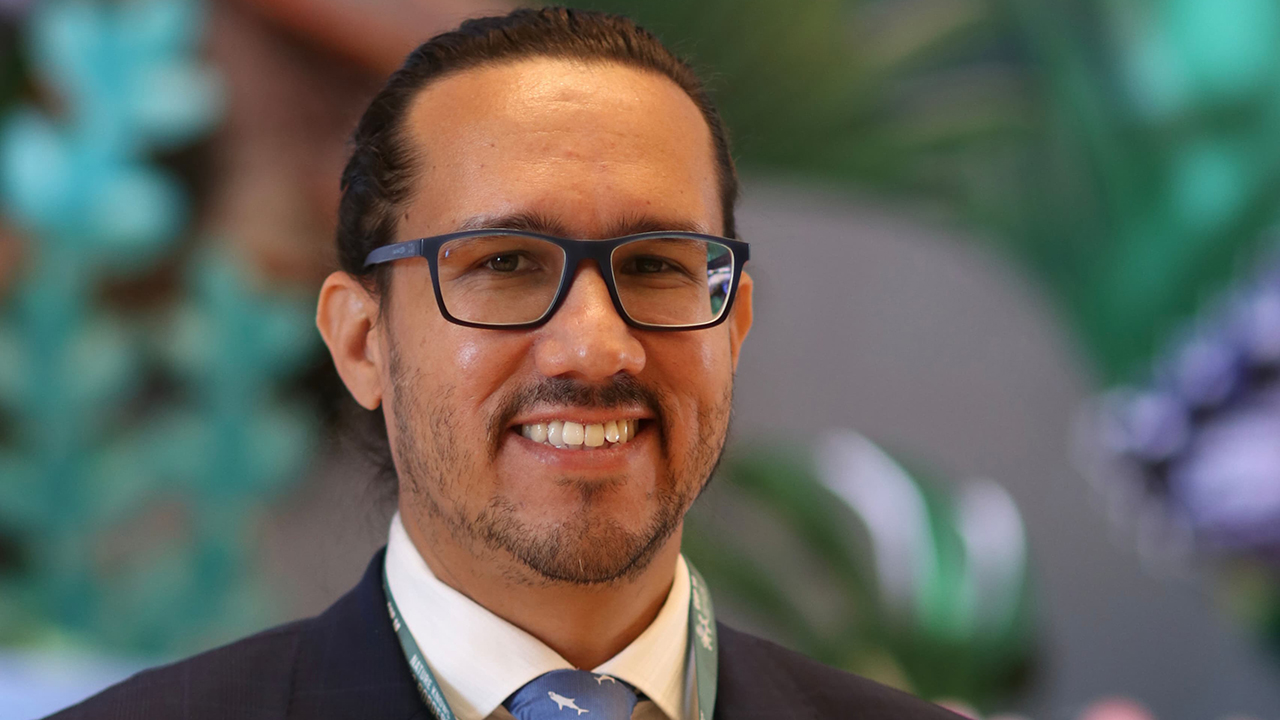
Daniel Fernando, MCAF Fellow
Co-Founder and Director of Blue Resources Trust
What inspired you to work in ocean conservation?
There were three key factors that inspired and enabled me. The first was the opportunity to scuba dive. While I had always loved snorkeling, the ability to be completely underwater and so much closer to the fish really got me engaged with the ocean. The second was the flexibility of the National Oceanography Center in the UK to accept me into the marine resources management master’s program despite my lack of a marine background, as I had studied biomedical science! And finally, witnessing the impacts of overfishing, since this really drove me to advocate for change through science and policy.
What do you like about being part of the MCAF community?
The MCAF community is perhaps better described as the MCAF family! In my personal experience, unlike other funders that limit interactions to the application and reporting phases, MCAF proactively stays engaged throughout and extends support beyond. This sustained connection is vital for project success. Also, the flexibility of MCAF to adapt to various situations, including emergencies, sets it apart. And, of course, having so many individuals being part of the wider community/family that provide constructive critique is truly invaluable.
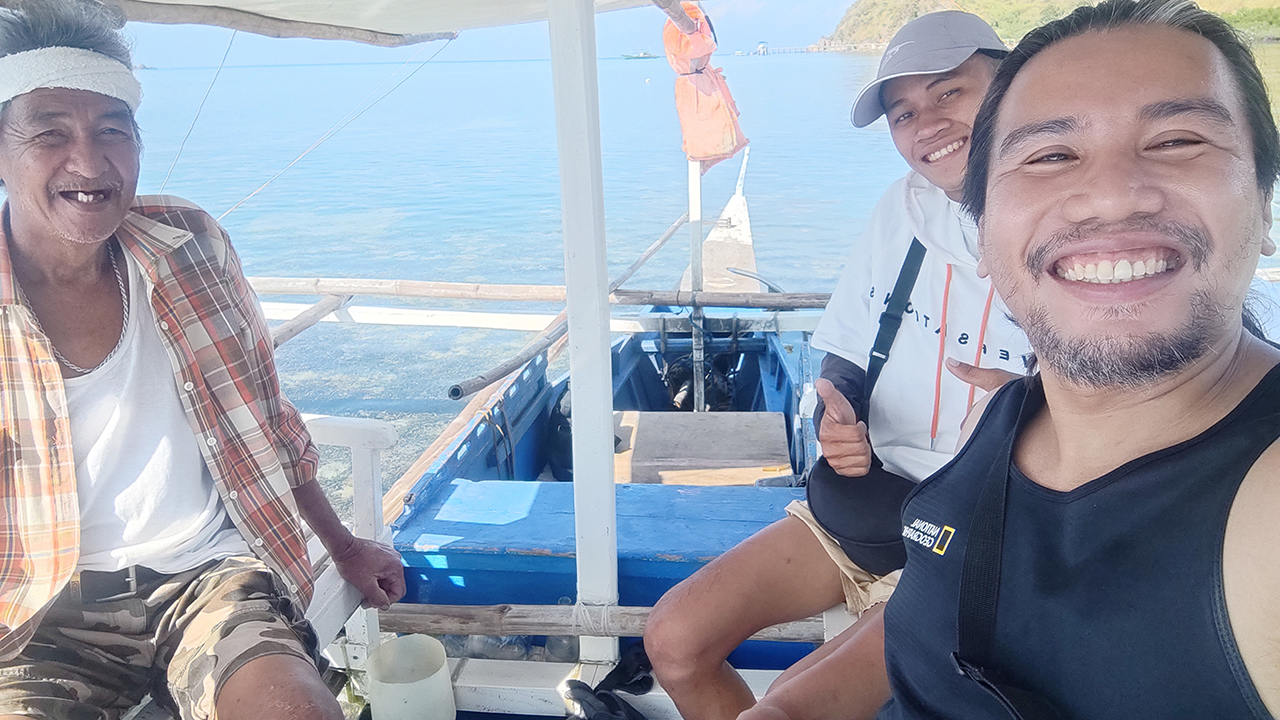
Clint Gallaron, MCAF Project Leader
University of California, Santa Cruz; Indigenous Marine Management, Philippines
What inspired you to work in ocean conservation?
I just found myself connected to the ocean. Growing up in the mountains, far from the ocean, I’ve always been captivated by its vastness and mystery. Whenever I visited my fisherfolk side of the family, I was instantly captivated by their way of life. As a child, the ocean seemed endless and filled with possibilities, sparking a deep desire to explore and understand it. That is why I immersed myself in ocean-related materials—books, magazines, and TV documentaries from a young age. I vividly recall a moment at around age seven, discussing my aspirations to be “an environmental conservationist” with my family. Like any child, I did not take that quite seriously, but life eventually guided me back to that childhood dream.
As a Filipino, I’ve realized our culture’s profound connection with the ocean. We were once a people deeply rooted in ocean exploration. With this, I feel a sense of duty to help those around me reconnect our identity with the ocean—to rediscover who we truly are. This cultural heritage fuels my passion for ocean conservation. Seeing younger generations inspired by my work and expressing a desire to pursue similar paths motivates me even more. Witnessing their understanding of the importance of ocean conservation fills me with hope and reinforces my commitment to this cause.
Why is it important to work with local and indigenous community members to help conserve the ocean?
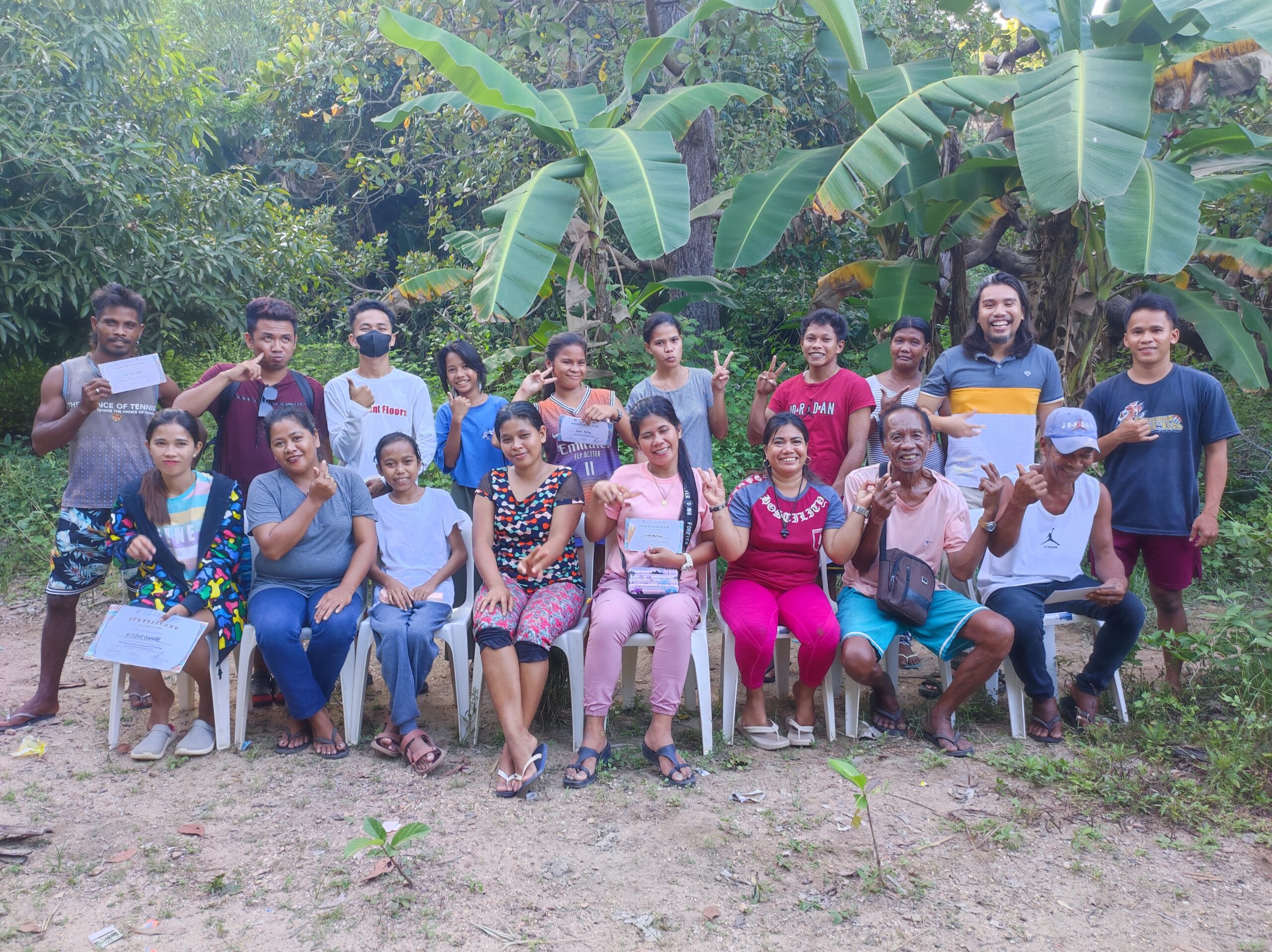
I’ve been happy to witness a growing trend toward collaborative efforts in ocean conservation over the years. And what better way to exemplify this than by partnering with local and Indigenous communities? There’s no shortage of proposed solutions when we discuss the many challenges facing our oceans—plastic pollution, overfishing, biodiversity loss, and climate change impacts. From behavior change communication to fancy tech and market-based incentives, everyone has their ideas. But in my eyes, all these problems share a common origin: colonization.
Even today, colonization’s shadow looms large, especially in places like the Philippines, where fortress conservation is promoted in the name of development and nature protection. And those ocean issues? They’re just symptoms of this ongoing historical struggle. So, to truly make a difference, we need to tackle the root cause head-on. That’s why I’ve found myself drawn to working alongside and uplifting Indigenous coastal communities.
These communities hold the key to unlocking solutions. They’ve been stewards of the ocean for generations, nurturing a sustainable relationship with their territories long before “conservation” became a buzzword. Instead of pushing for strict conservation measures, I advocate for a more pragmatic approach that honors the ocean’s intrinsic value and respects its natural cycles.It’s about recognizing that everything in the ocean has a purpose, and nothing lasts forever. If we want to keep our oceans thriving, we need to adopt a mindset of stewardship and respect—the kind that Indigenous peoples have been practicing for centuries.

